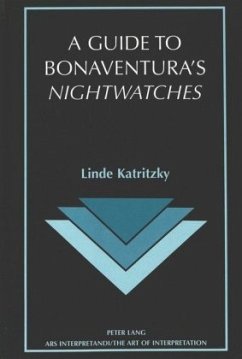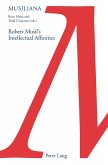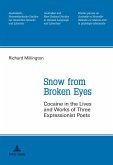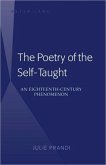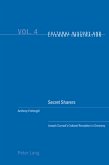Literary criticism and a reference guide to Bonaventura's extratextual sources are combined in this interpretation of the Nachtwachen as a menippea - the satiric subgenre dealing with the discrepancy between ideals and realities in the encyclopedic pursuit of ultimate truth. The seemingly random profusion of interspersed names, hints, and allusions has been decoded and interconnected to disclose the comprehensive background against which the anonymous author tests the validity of traditional knowledge and wisdom, as well as his own experiences and views. Proper names, in particular, are taken to provide authorial indications in a text, where time, place, and action are deliberately indistinct. When their jumbled sequence is unraveled and their signpost function is recognized, the text appears as a veritable compendium of eighteenth-century culture and tightly structured intellectual experience, which, in its apparently haphazard arrangement, mirrors the confusion of life.
Oxymeronic combinations and abrupt changes of mood and situations further emphasize the perplexities of human existence, all of them characteristics of the menippea, which does not supply direct and unequivocal answers. Sense and deeper meaning emerge, however, when all points of reference are combined to reveal firm coherence under the discordant surface. The menippea can only imply solutions. Its generic assignment is to pose questions, cast doubt on accepted attitudes, and to stimulate independent thinking, active responses, and new approaches to perennial problems. In the Nachtwachen these objectives are pursued with unusual erudition and an intensive intellectual curiosity that tests the limits of human understanding in all conceivable directions. By appropriating the achievements of literature, art, science, and philosophy, the work points to an author of unusual, scholarship and vision.
Oxymeronic combinations and abrupt changes of mood and situations further emphasize the perplexities of human existence, all of them characteristics of the menippea, which does not supply direct and unequivocal answers. Sense and deeper meaning emerge, however, when all points of reference are combined to reveal firm coherence under the discordant surface. The menippea can only imply solutions. Its generic assignment is to pose questions, cast doubt on accepted attitudes, and to stimulate independent thinking, active responses, and new approaches to perennial problems. In the Nachtwachen these objectives are pursued with unusual erudition and an intensive intellectual curiosity that tests the limits of human understanding in all conceivable directions. By appropriating the achievements of literature, art, science, and philosophy, the work points to an author of unusual, scholarship and vision.

